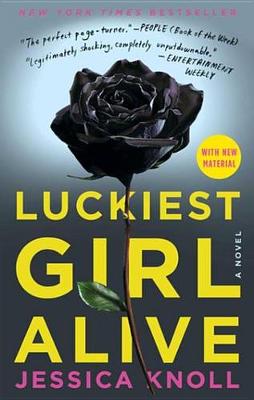
Amber (The Literary Phoenix)
The ideas and tragedy behind Luckiest Girl Alive is both immensely interesting and heartbreaking, but I didn't enjoy this book as much as I hope. And I guess I should have known better - most the reviews I read said the book was fairly mediocre. I think it's a bit better than mediocre, but I didn't connect with Ani.
Trigger warnings for the book include rape, group rape, homophobia, and just about the worst of any high school bullying situation you can imagine. The term "anorexia" is thrown around in there beginning like a lifestyle instead of a serious eating disorder. And there's a scene flush with horrifying violence, told in gut-wrenching detail. It's the turning point of the story, and important, but it turned my stomach.
I think I would have liked Luckiest Girl Alive more if the author hadn't spent so much time on Ani at the beginning - the Ani we meet is pretentious, insufferable... a completely unlikable character. The traumatic scenes are written flawlessly, but the rest is just plain annoying. This is all a farce of course - this picture of Ani is the part of the book that leads marketing teams to compare it to Gone Girl. That comparison, by the way, is terrible. This book and Gone Girl are telling such different stories with ultimately very different characters.
The point Jessica Knoll touches on and extremely important. I wish there was a better discussion about certain aspects (the homophobia, for one) but her illustration about the horrifying nature of rape culture and slut shaming is painful in the sort of way that makes you cringe because you know that people out there have experienced these horrors. The *author* has experienced these horrors. It's a good book to start a conversation about the importance of "no" and knowing boundaries... and of drawing up the importance of building the understanding of exactly what is rape.


